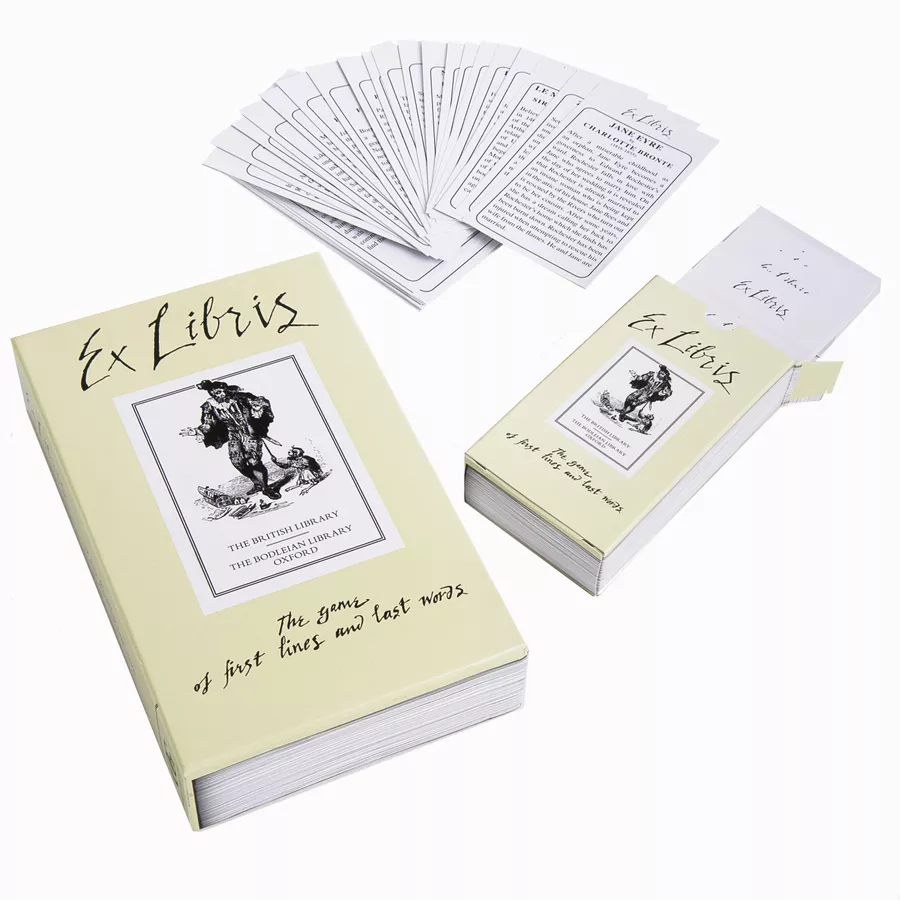
Way back in 1991, Ex Libris ventured out into the world of game-playing from one of England’s great learned and literary cities: Oxford.
This is not the complex game of the same name that was brought onto the scene in about 2017.

In this Ex Libris, there’s no board, no special pieces, and no beautifully decorated cards. There are just plain white cards, containing information about a hundred novels from authors ranging from Charles Dickens to Harold Robbins, from Jane Austen to Barbara Cartland. Clearly, a vast variety of writing styles.
It’s described as “the game of first lines and last words”. As you can guess, it’s very much a words-game: a miniature creative writing escapade, with opportunity for fun and frustration.
In each round, one player acts as reader. They pick a card (about a book), then name the author and read out a brief description of the book. The others then have to write the opening or closing words to the work. It might be a longish sentence, or just a few words.
They are seeking to lure fellow players into believing their words to be the genuine ones. They don’t have to try to remember the book (if they ever read it anyway), nor the style. They merely (?) need to scribble down something that seems plausible, remembering that the others may know even less about the book and its author.
These all handed (unseen) to the reader, who mixes the genuine and fake words together. Then each is read out, and players vote for the words they believe to be the real ones. The outcomes and the scores received rest on those votes.

Because of the demand to think and create, Ex Libris may seem more complex than it actually is.
- the game needs no learning
- easy setting up
- replayable
- no strategy or tactics involved
- a bit of bravery wouldn’t go amiss
- calls for creative thinking
- creating clues
